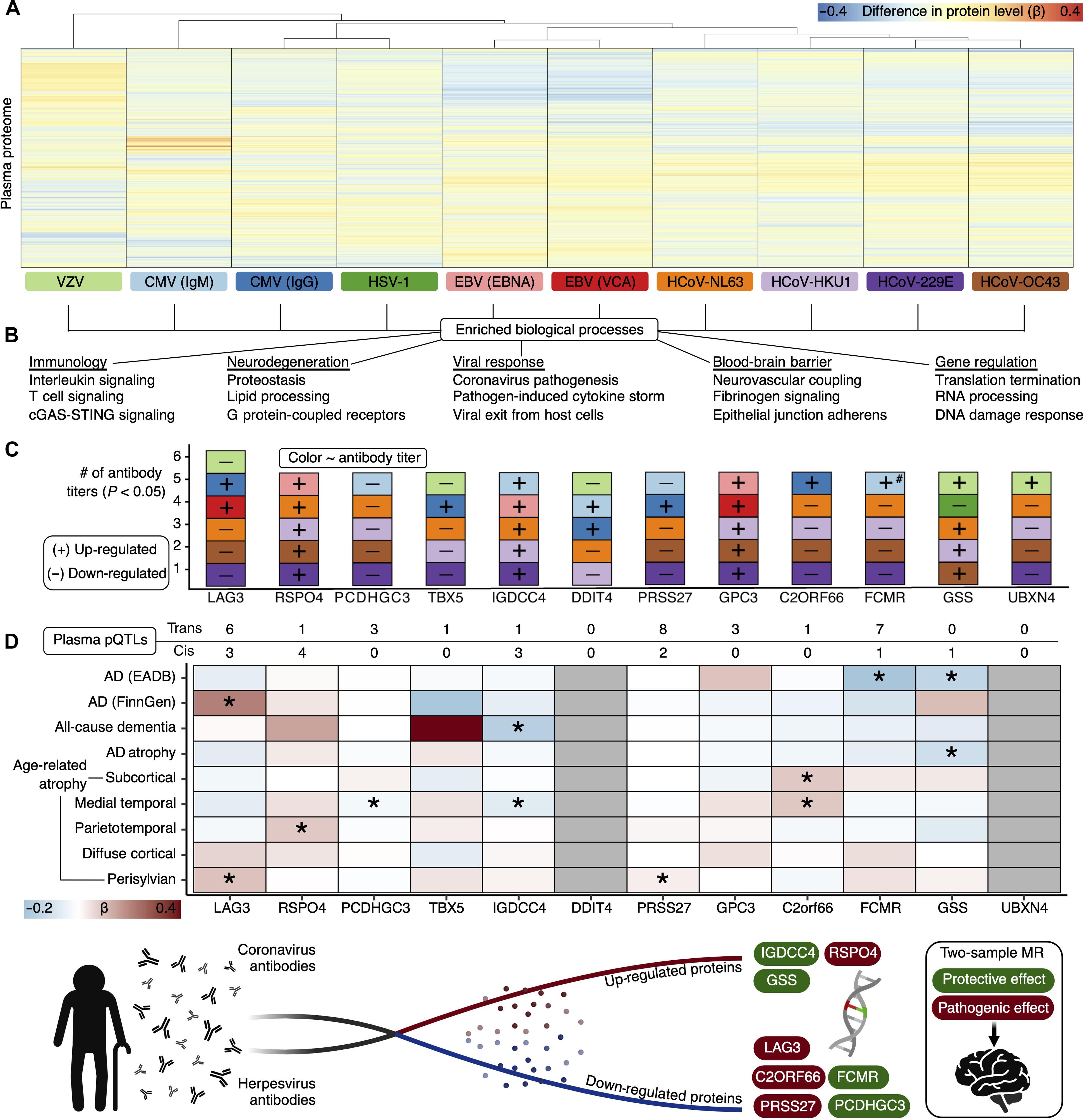Proteomic signatures of corona and herpes viral antibodies identify IGDCC4 as a mediator of neurodegeneration
IF 12.5
1区 综合性期刊
Q1 MULTIDISCIPLINARY SCIENCES
引用次数: 0
Abstract
Mechanisms underlying the dynamic relationships of viral infections and neurodegeneration warrant examination. Using a community-based cohort of older adults, the current study characterized the neurocognitive (cognitive functioning, brain volumes, Alzheimer’s disease positron emission tomography, and plasma biomarkers) and plasma proteomic (7268 proteins) profiles of four common coronavirus and six herpesvirus antibody titers. Genetic inference techniques demonstrated the associations between viral antibody titers and neurocognitive outcomes may be attributed to altered expression in a subset of mechanistically relevant proteins in plasma. One of these proteins, IGDCC4 (immunoglobulin superfamily deleted in colorectal cancer subclass member 4), was related to 20-year dementia risk, cognitive functioning, and amyloid-β positivity using data from two independent cohorts, while its plasma and intrathecal abundance were causally implicated in dementia risk and clinically relevant brain atrophy. Our findings illuminate the biological basis by which host immune responses to viruses may affect neurocognitive outcomes in older adults and identify IGDCC4 as an important molecular mediator of neurodegeneration.

冠状病毒和疱疹病毒抗体的蛋白质组学特征确定IGDCC4是神经变性的介质
病毒感染和神经退行性变的动态关系背后的机制值得研究。目前的研究采用社区为基础的老年人队列,表征了四种常见冠状病毒和六种疱疹病毒抗体滴度的神经认知(认知功能、脑容量、阿尔茨海默病正电子发射断层扫描和血浆生物标志物)和血浆蛋白质组学(7268种蛋白质)谱。遗传推断技术表明,病毒抗体滴度和神经认知结果之间的关联可能归因于血浆中一组机制相关蛋白的表达改变。来自两个独立队列的数据显示,其中一种蛋白IGDCC4(结直肠癌亚类成员4中缺失的免疫球蛋白超家族)与20年痴呆风险、认知功能和淀粉样蛋白-β阳性相关,而其血浆和鞘内含量与痴呆风险和临床相关的脑萎缩有因果关系。我们的研究结果阐明了宿主对病毒的免疫反应可能影响老年人神经认知结果的生物学基础,并确定IGDCC4是神经退行性变的重要分子介质。
本文章由计算机程序翻译,如有差异,请以英文原文为准。
求助全文
约1分钟内获得全文
求助全文
来源期刊

Science Advances
综合性期刊-综合性期刊
CiteScore
21.40
自引率
1.50%
发文量
1937
审稿时长
29 weeks
期刊介绍:
Science Advances, an open-access journal by AAAS, publishes impactful research in diverse scientific areas. It aims for fair, fast, and expert peer review, providing freely accessible research to readers. Led by distinguished scientists, the journal supports AAAS's mission by extending Science magazine's capacity to identify and promote significant advances. Evolving digital publishing technologies play a crucial role in advancing AAAS's global mission for science communication and benefitting humankind.
 求助内容:
求助内容: 应助结果提醒方式:
应助结果提醒方式:


